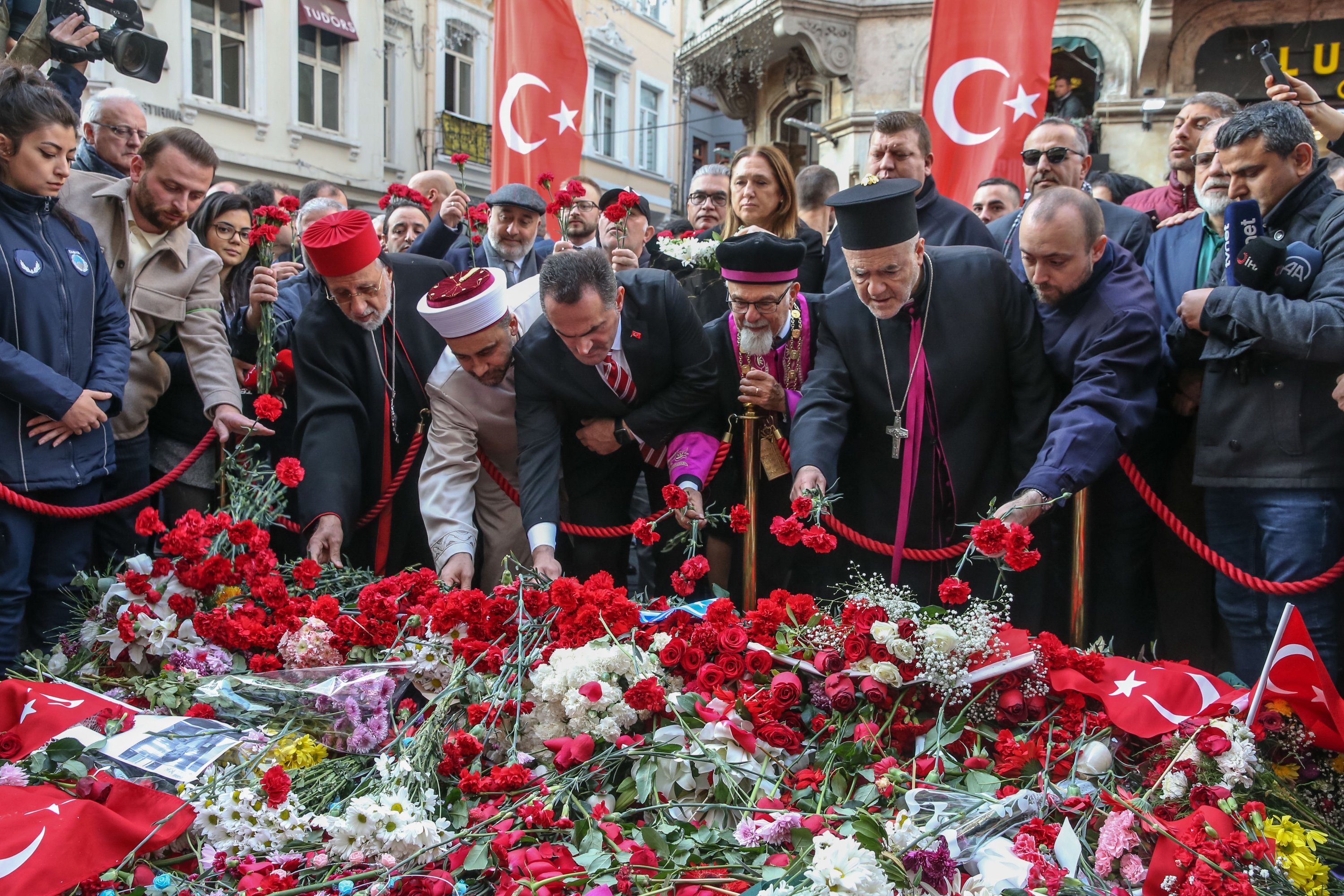© Turkuvaz Haberleşme ve Yayıncılık 2026
People from all walks of life staged a march on Istanbul’s Istiklal Street on Wednesday, in a demonstration of solidarity against terrorism, which claimed six lives in the city’s busy pedestrian thoroughfare.
The “Istiklal Bizim” ("Istiklal is Ours") march brought together leaders of different communities, including the chief rabbi, the Armenian Orthodox church’s top clerics, clerics from the Greek Orthodox church, Syriac church, imams, diplomats from consulates and representatives of nongovernmental organizations (NGOs). “Istiklal” also means “independence” in Turkish.
The crowd, led by Haydar Ali Yıldız, mayor of the Beyoğlu district where the street is located, left flowers at the scene of the bombing carried out by a PKK terrorist.

The busy shopping street, which was shut down amid the heavy presence of security forces in the aftermath of the terrorist attack, was reopened for pedestrians on Monday morning, as municipal crews cleaned up the street. Crews also removed benches across the avenue, where the prime suspect in the bombing was claimed to be sitting before the bombing. People visited the exact spot of the blast, cordoned off after the attack, and left carnations in memory of the victims.
The street was the scene of another terrorist attack, by Daesh, on March 19, 2016. Other busy venues of Istanbul, including Sultanahmet square, a stadium near Taksim where Istiklal is located and Atatürk Airport were targets of terrorist groups PKK and Daesh in the 2010s. Yet, thanks to the country's counterterrorism efforts, the acts of terrorism have significantly reduced. Indeed, a brutal attack by Daesh at a popular nightclub in 2017 was the last major attack in the city. Interior Minister Süleyman Soylu has announced after the Istiklal bombing that some 200 terror attacks were prevented in Türkiye this year so far.
